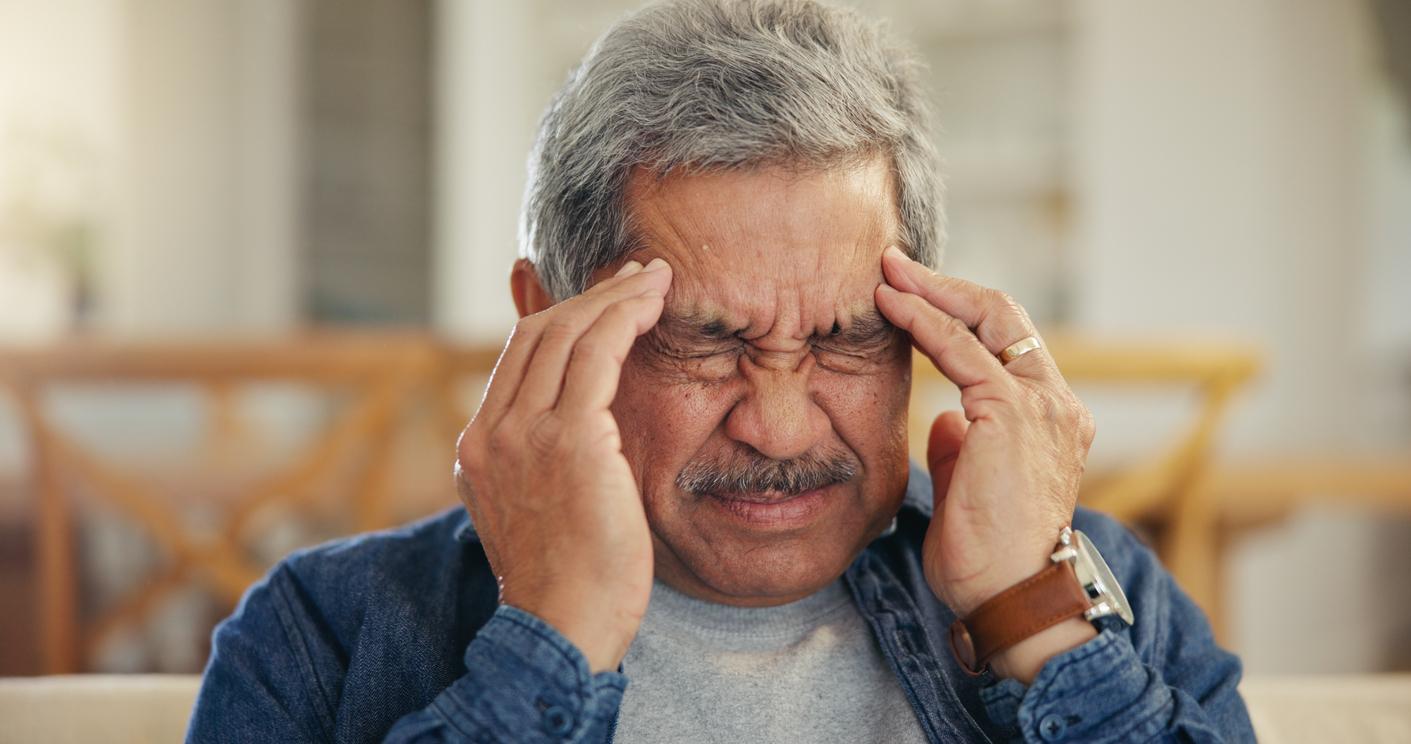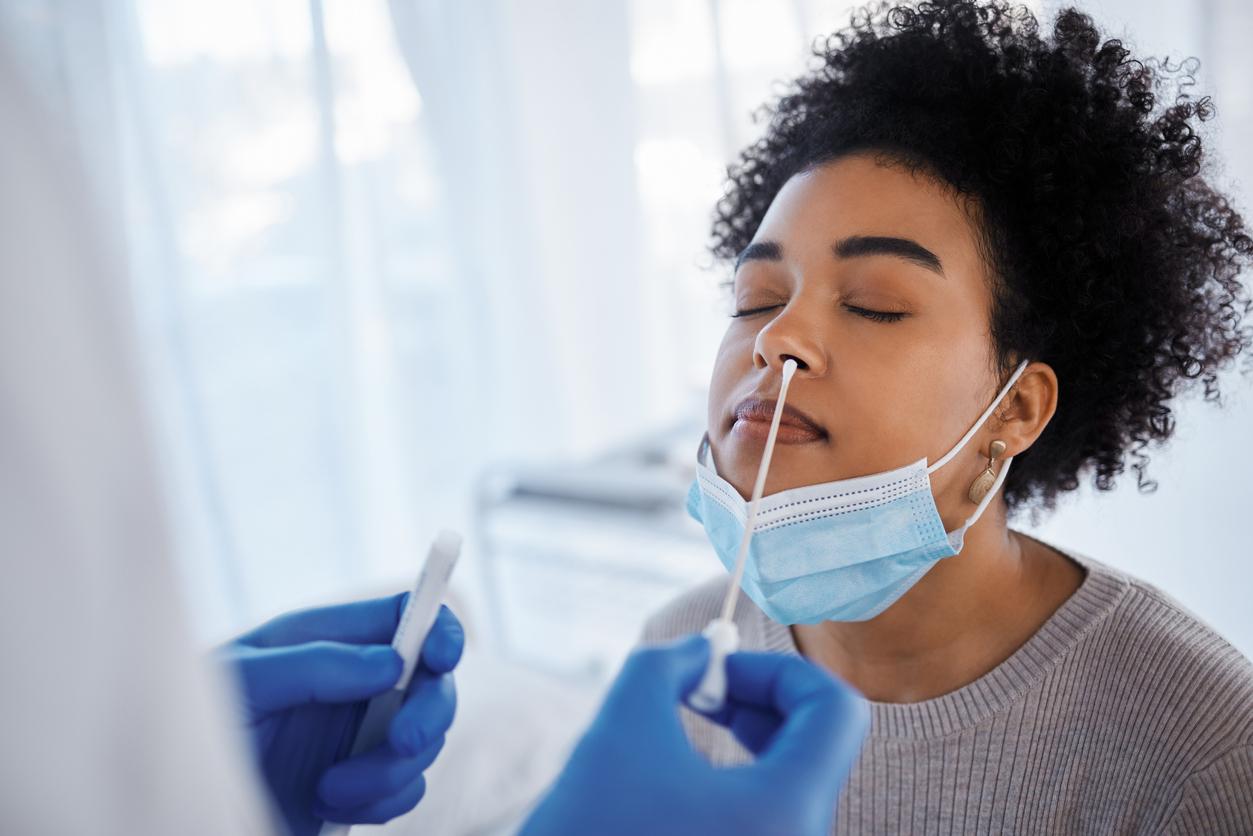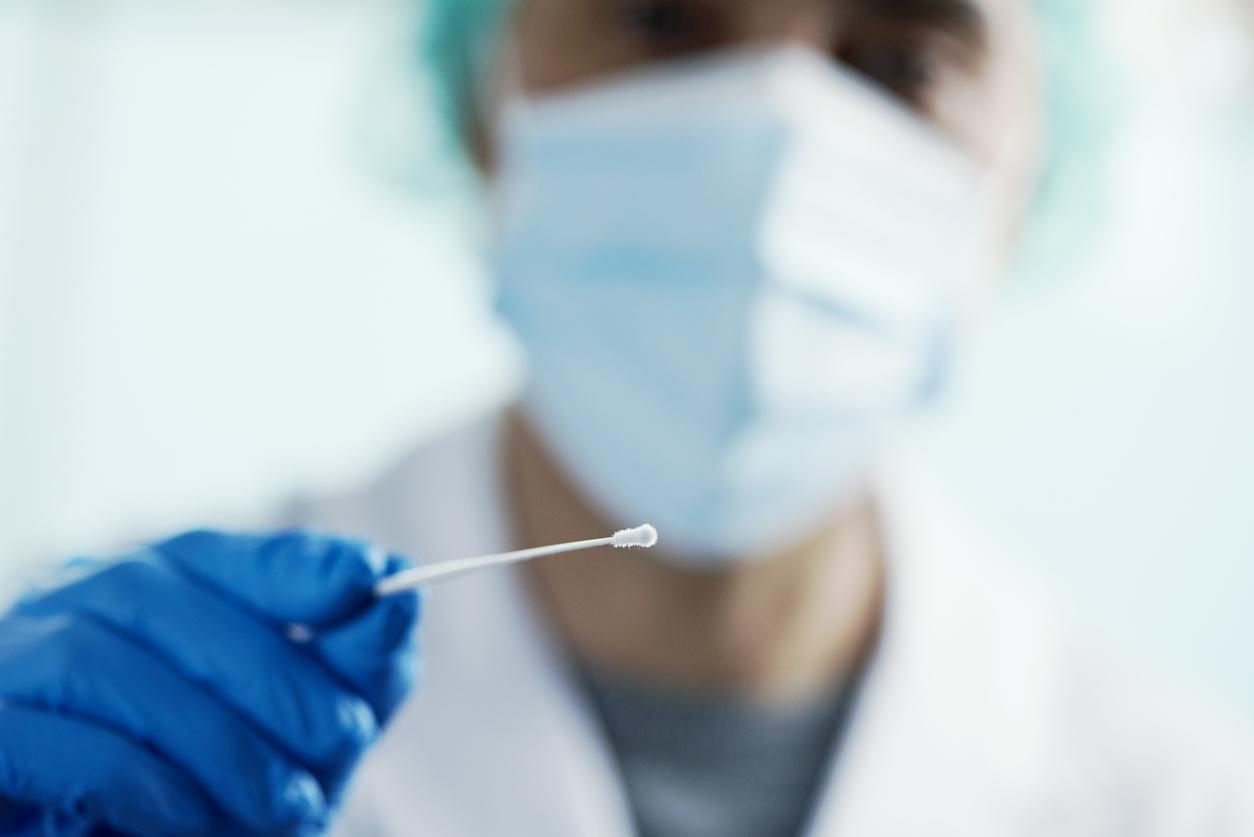Dexamethasone, a powerful anti-inflammatory that belongs to the corticosteroid family, would have saved nearly a million patients hospitalized with a severe form of Covid-19.

- This powerful anti-inflammatory is part of the large British randomized clinical trial Recovery and is being tested in France through the Corimuno-19 platform trial, promoted by the APHP.
- Two researchers have expressed doubts about the figure of one million patients saved but confirm the “significant impact” of the drug.
- A cocktail of two monoclonal antibodies, casiriviman and imdevimab, showed a 70% reduction in the risk of hospitalization and death in results from a phase III clinical trial.
Alongside vaccines, dexamethasone is a strong ally in the fight against Covid-19. Britain’s National Health Service (NHS) says the steroid drug has saved the lives of around one million patients with severe Covid-19 across the country. the world. This powerful anti-inflammatory is part of the large British randomized clinical trial Recovery and is tested in France through the Corimuno-19 platform trial, promoted by the APHP.
Doubts on the one million figure
The NHS relies on a study published on February 10 in the journal NatureCommunications which claims that 650,000 patients were saved worldwide thanks to dexamethasone between July and December 2020. Adding the first three months of the year, we would even reach the figure of 1,400,000 lives saved, according to the health service British. From the start of the clinical trial Recovery, launched in March 2020, the steroid has emerged as the drug that offers the greatest chance of survival for hospitalized patients. “Dexamethasone is the first drug observed to improve survival in Covid-19had announced on June 16 in a statement test managers Recovery. One in eight deaths could be avoided thanks to this treatment in patients placed on artificial respiration.” In detail, the anti-inflammatory reduces the risk of death by more than a third (36%) in patients on artificial respirators and by almost a fifth (18%) in those on oxygen.
The figure of one million people saved was tempered by Peter Horby, an infectious disease specialist at Oxford University and the initiator of the trial Recovery. “A million is a big numberhe judges Guardian. It’s an estimate that could well be lower or higher than that. We do not know.” Despite this, he acknowledges that dexamethasone has “a big impact” on the number of deaths. His doubts were shared by Emeritus Professor of Statistics Kevin McConway, who works at the Open University in London. “It is absolutely true that a large number of people are alive today thanks to dexamethasone, but some of the numbers seem far too precisehe pleads to Science Media Center. […] Details on exactly how this number was calculated are vague..”
Monoclonal antibodies also effective
Behind dexamethasone, other treatments are demonstrating their effectiveness against severe forms of Covid-19. Among them, monoclonal antibodies show efficacy in reducing hospitalizations and deaths. A cocktail of two monoclonal antibodies, casiriviman and imdevimab, showed a 70% reduction in these two risks in results of a phase III clinical trial carried out on 4,567 volunteers. In addition to reducing the risk of hospitalizations and death, these two monoclonal antibodies seem to reduce the duration of symptoms by 4 days, from 14 days to 10 days. Finally, it is also associated with a decrease in viral load in patients who are asymptomatic or who have a mild form of the disease.
The ANSM authorized the temporary use of the casirivimab-imdevimab combination on March 15. for people at high risk, likely to develop a severe form of Covid-19. The cocktail has not yet obtained marketing authorization (MA), but the European Medicines Agency has issued a favorable opinion for its use before obtaining the latter.
Other treatments under study
Another monoclonal antibody, Advoralimab, is under study. Promoted by the Public Assistance – University Hospitals of Marseille (APHM), it has shown initial encouraging results in patients hospitalized with severe pneumonia. “In the first study, we only analyzed what happens in the patient’s bodyshared with us Éric Vivier, professor of immunology at APHM and Scientific Director who is leading the FORCE study which analyzes the effect of avdoralimab. Then, we did tests on mouse models where we mimicked lung inflammation and showed that we can treat it with the antibody advoralimab. We are now in a phase 2 study which includes 208 patients.”
Among the other treatments being studied in France, polyclonal antibodies have also shown encouraging signs of reducing the risks for infected people. Their objective is to suddenly reduce the viral load and therefore prevent the appearance of severe forms. “The first results obtained with antibodies are very positive and indicate that the situation improves in 50 to 75% of casesrevealed to us Bernard Vanhove, scientific director of the Nantes company Xenothera which studies these drugs against the virus. We hope that the results on a larger cohort will remain within this range. We expect them for the beginning of May.”

.

















